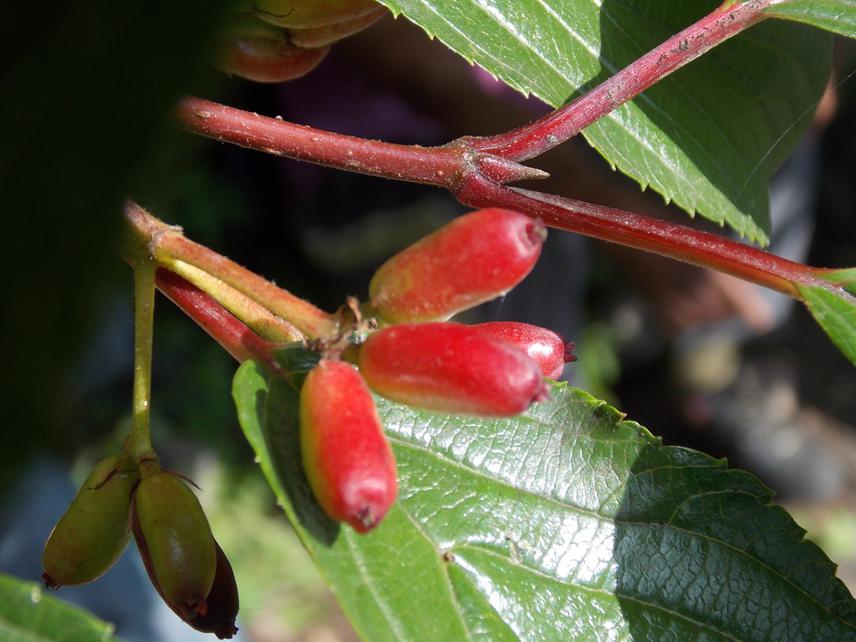Deepak Dhyani
Himalayas are a hub of underutilized lesser known wild edible biodiversity. This project is to generate awareness among locals for in-situ and ex-situ conservation of these plants and help in setting up a community based seed bank along with some innovative conservation material.

Syzygium cumini still raw on trees.
Local inhabitants in Himalayan region, dwelling in remote and inaccessible valleys of Garhwal, depend on a variety of lesser known underutilised wild edibles for their nutritional support. In these areas, where market supplies are not organized, locals use these wild fruits and vegetables as a major source of nutrition and medicine. Increased urbanization coupled with migration is leading to erosion of traditional and indigenous knowledge linked with them. Improper utilization also sometimes leads to wastage. This neglect has led to the genetic erosion of their diversity in Central Himalayas. The main contribution of the work will be to generate awareness and build capacity among indigenous Garhwalese and Indo-Mongoloid Bhotiya tribal community. Project will enhance the understanding about value added products and how they can be developed by sustainable utilization and conservation. An integrated conservation approach by involving all stakeholder groups of the communities will be consulted and worked with. This will ensure not building of capacity but also indigenous and traditional knowledge sharing for efficient documentation and will be made available to a wider audience. Project aims to understand and ensure local mapping of lesser known wild edibles present in the region, their consumption pattern and extent of usage. Helping local youth and children to explore their own forests, having eco-clubs with diverse interesting efforts for having a clear understanding of wild edible diversity and how they can ensure in-situ as well as ex-situ conservation of these species by their own small efforts.
Project proposes to develop a seed bank of these lesser known wild edibles of region. Innovative approach will be used for the purpose by involving locals, developing literary material in local language for school going children and others. This project at large will communicate the value of food security by utilizing cost effective local resources and linking conservation with livelihood enhancement approaches. Our larger goal will be to generate awareness about utilization of local nutritious easily available and low cost food products so, that food miles can be reduced and help in establishing and aiming for a better and sustainable tomorrow.